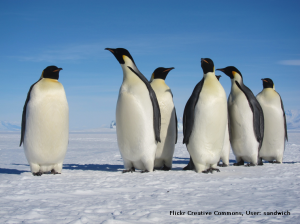 The latest effort to establish new marine protected areas (MPAs) in the Antarctic has ended in failure as reports emerge that diplomatic tensions over the conflict in the Ukraine may have helped scuttle plans. The two new MPAs would have protected 2.5 million square kilometres of pristine Antarctic waters.
The latest effort to establish new marine protected areas (MPAs) in the Antarctic has ended in failure as reports emerge that diplomatic tensions over the conflict in the Ukraine may have helped scuttle plans. The two new MPAs would have protected 2.5 million square kilometres of pristine Antarctic waters.
In the days leading up to the decision we asked The University of British Columbia’s fourth year, Ocean Conservation and Sustainability class to put together their thoughts on the biological, economic and social, policy and implementation issues surrounding these new MPAs.
The students found a surprising lack of information. In principle, students thought that MPA establishment is sorely needed in the Antarctic. They were surprised to find that aside from documentation of Antarctic biodiversity, there was almost no analysis on the economic costs and benefits of Antarctic MPA establishment. Likewise, there was a dearth of information on how the MPAs would be implemented and the policy implications.
Read their thoughts, here:
Biological: https://blogs.ubc.ca/hannahfiegenbaum/2014/10/31/time-to-protect-the-penguins-will-ccamlr-create-the-largest-protected-marine-area-in-the-world/
Economic and Social: https://blogs.ubc.ca/thenewsynudibranch/2014/10/29/ccamlr-3-good-reasons-for-implementing-mpas/
Policy: https://blogs.ubc.ca/waterywonders/2014/10/30/ccamlr-we-save-the-oceans-with-poli-seas-before-we-krill-them-all/
Implementation: https://blogs.ubc.ca/liria/2014/10/30/the-ross-sea-mpa-overcoming-the-difficulty-of-implementation/